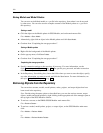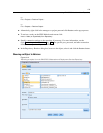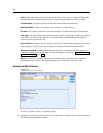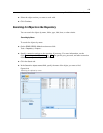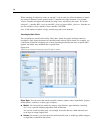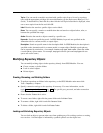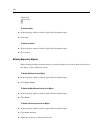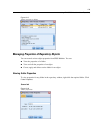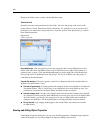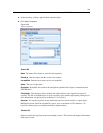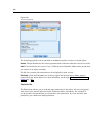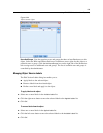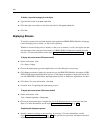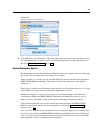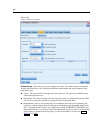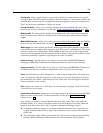
180
Chapter 9
Displays the folder name, creation, and modification dates.
Permissions tab
Specifies read and write permissions for the folder. All users and groups with access to the
parent folder are listed. Permissions follow a hierar chy. For example, if you do not have read
permission, you cann ot have wr ite permission. If you do not have write permission, you cannot
have delete permission.
Figure 9-19
Folder properties
Users And Groups.
Lists the repository users and groups that have at least Rea d access to this
folder. Select the Write and Delete check boxes to add those access rights for this folder to a
particular user or group. Click the Add Users/Groups icon on the right side of the Permissions
tab to assign access to additional users and groups. The list of available users and groups is
controlled by the administrator.
Cascade Permissions.
Choose an option to control how changes made to the current folder are
applied to its child folders, if any.
Cascade all permissions.
Cascades permission settings fr om the current folder to all child and
descendant folders. This is a quick way to set permissions for several folders at once. Set
permissions as required for the parent folder, and then cascade as required.
Cascade changes only.
Cascades only changes made since the last time changes were applied.
For example, if a new group has been added and you want to give it access to all folders under
the Sales branch, you can give the group access to the root Sales folder and cascade the
change to all subfolders . All other permissions to existing subfolders remain as before.
Do not cascade.
Any changes made apply to the current folder only and do not cascade
to child folders.
Viewing and Editing Object Properties
In the Object Properties dialog box you can view and edit properties. Although some properties
cannot be c
hanged, you can always update an object by adding a new version.



